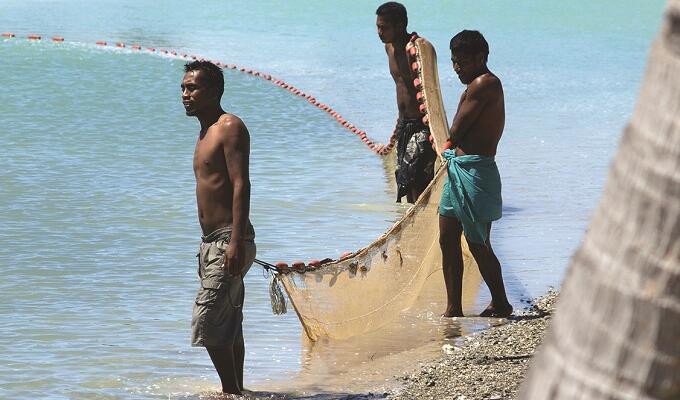

Small states, big trade challenges (en)
resilience through diversified production and effective trade policies
Global trade is suffering due to a trade slowdown, political changes that no doubt we have all been following and an increase in anti-globalization measures, particularly those that inhibit trade.
The changing landscape of global trade challenges societies across the world. It is, however, particularly worrying for developing countries that in most cases do not have robust infrastructures to facilitate imports and exports. Of the 52 Commonwealth countries that work together to support democracy, good governance and development, 31 are small states ranging from coral archipelagos like the Solomon Islands to landlocked states like Swaziland, countries held back by their size and geographical location. In many cases they do not have national trade policies (NTPs). Without them, their capacity to import and export is constrained and development becomes difficult.
CHALLENGESThe small size of many countries in the Africa, Caribbean and Pacific (ACP) group often means they cannot capitalize on economies of scale and end up depending heavily on tourism, fisheries and agricultural exports. Although they are open to trade, their remoteness from international markets increases the cost of trading goods and services. As a result, this group of states is often the most vulnerable to shocks and changes in world trade trends.
We often think that stunning Caribbean countries such as Belize and Barbados are awash with tourists supporting their respective GDPs. In fact, their small-sized economies and dependence on exports and imports puts them at risk of trade shocks. Kiribati, for example, is a country in the Pacific made up of 33 islands scattered across 5.2 million square kilometers of ocean with a population of just 110,000. For ease of doing business, the World Bank ranks it 149th out of 196 countries. With few natural resources, Kiribati also runs a huge trade deficit, exporting $119 million in 2015 and importing more than $161 million. The country’s widely dispersed population and dependence on imports will likely continue to hinder its economic development unless a practical solution is found.
Other islands in the region experience similar frustrations, including the Federated States of Micronesia. With trade identified as a significant enabler in achieving the Sustainable Development Goals (SDGs), several countries are slowly reaping the benefits of innovative ideas under the Hub and Spokes Programme. The Hub and Spokes Programme is a joint initiative of the European Union, the ACP Group Secretariat, the Commonwealth Secretariat and the Organisation Internationale de la Francophonie. It provides trade experts to participating countries to help them develop their strategies in a way that reflects their national priorities to be effective in a global trading system. Enhancing trade capacity in the ACP region is more than implementing new trade policies and agreements. It involves listening to those at the grassroots level and ensuring that local producers are not left behind.
IMPROVING THE SITUATIONAlthough governments are tasked with improving trade at the national level, Micronesia is taking a unique approach by helping grassroots organizations reduce their vulnerability to shocks. Through identifying natural resources that have not been fully exploited, Micronesia’s Coffee Farmers Association has reintroduced coffee farming in Pohnpei and coffee has become an emerging product in the small state. Through the support of trade advisers, such innovative thinking can help many of the most remote nations diversify their export base.
The unique challenge of enhancing trade capacity in the Pacific requires a distinctive approach. The remote location of the Republic of Marshall Islands (RMI) means that marine, tourism and agricultural sectors are priorities in its national trade policy framework. To improve domestic competitiveness, the government initiated an innovative programme called ‘Be Marshallese, Buy Marshallese’ to encourage local branding. Brands exclusive to the Marshall Islands like Pandanus Juice are now successfully exported to New Zealand. The concept has been promoted on advertisements in the magazines of Nauru airlines and been popularised at festivals including the Guam Festival of Arts. Such strategies have proven successful in enticing the private sector to collaborate with development initiatives.
Another possibility comes from the Boosting Intra-Africa trade (BIAT) initiative that will encourage African countries to increase the volume of continental trade and deepen regional market integration. This initiative is designed to significantly improve the size and benefits of trade for the attainment of sustainable economic development and growth for the region. Advisers with the Africa Union Commission (AUC) are currently developing a capacity-building programme for AUC member states to strengthen government officials’ capacities to negotiate trade in services whilst supporting an important engine for growth on the continent.
There are no quick fixes in such challenging environments. However, many small states in the Hub and Spokes programme are receiving assistance to implement trade policies and facilitate trade. Fiji envisaged becoming a trade and investment hub for the region and the first-ever comprehensive Fiji Trade Policy Framework came into force in 2016. The framework has become a single reference point on issues of industrial development, implementation initiatives and trade facilitation. While trade frameworks have existed for years in many advanced economies, Fiji was held back due to limited capacities and knowledge. The Hub and Spokes programme, which strengthens trade capacity in the ACP region, is encouraging export diversification by helping countries to develop and implement policies and agreements that reflect their national priorities.



